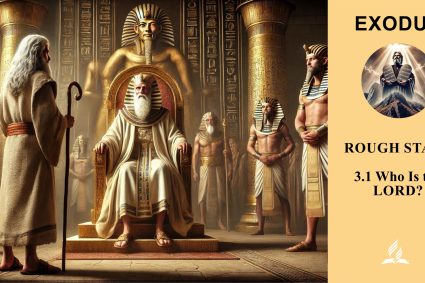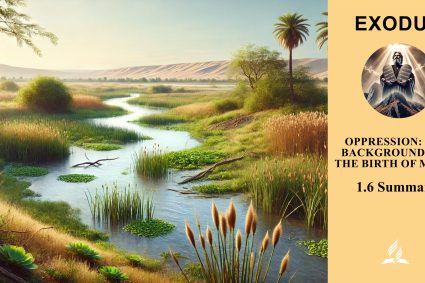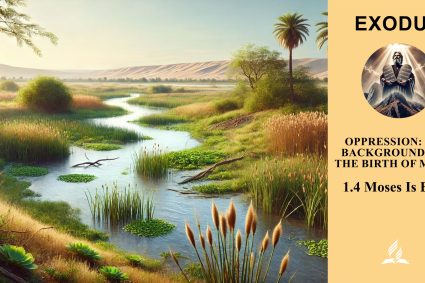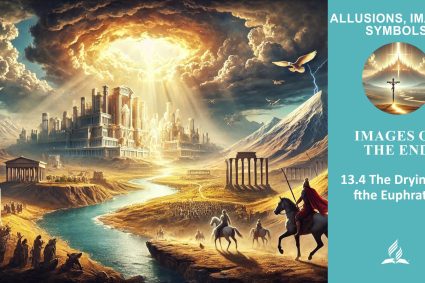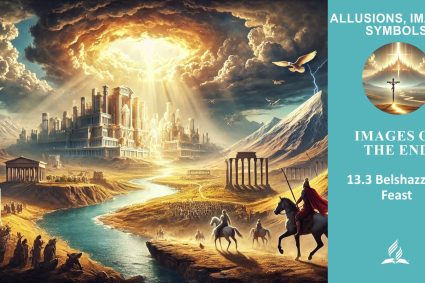


3.5 Battle for the Mind
In the Light of the Gospel Against the Darkness of Doubt
Read 2 Corinthians 4:3–6. What does it mean: “whose minds the god of this age has blinded, who do not believe, lest the light of the gospel of the glory of Christ, who is the image of God, should shine on them” (2 Cor 4:4)? How are they blinded? How does one gain sight?
2 Corinthians 4:3–6 reads:
“But even if our gospel is veiled, it is veiled to those who are perishing, whose minds the god of this age has blinded, who do not believe, lest the light of the gospel of the glory of Christ, who is the image of God, should shine on them. For we do not preach ourselves, but Christ Jesus the Lord, and ourselves your bondservants for Jesus’ sake. For it is the God who commanded light to shine out of darkness, who has shone in our hearts to give the light of the knowledge of the glory of God in the face of Jesus Christ.”
Meaning of “whose minds the god of this age has blinded” (2 Cor 4:4):
This verse speaks of spiritual blindness that those who do not accept or reject the gospel suffer from. The “god of this age” refers to Satan, who leads people away from the true light of the gospel through deception, distractions, and false teachings. They are “blinded,” meaning their spiritual eyes are closed to the truth of the gospel.
How are they blinded?
The Adventist Bible Commentary emphasizes that Satan wants to blind or darken people’s minds. This happens through various means:
-
Keeping people away from studying the Word of God
-
Disturbing spiritual faculties by excessive engagement with worldly matters
-
Temptation through physical and emotional excesses
-
Focus on pride and self-exaltation
How does one gain sight?
Understanding and comprehending the gospel are gifts from God. It requires a humble attitude and willingness to study and accept God’s Word. The Adventist Bible Commentary emphasizes that the gospel is the only means through which people can see the way from darkness to light. When someone hears, accepts, and implements the gospel in their life, they are freed from spiritual blindness and gain knowledge and understanding of God’s glory in Jesus Christ.
Conclusion:
The spiritual blindness mentioned in 2 Corinthians 4:4 is the result of Satan’s deceptions and rejection of the truth of the gospel. The solution lies in the gospel itself, which brings light and understanding. Through studying the Word of God, humility, and accepting Jesus Christ as Lord and Savior, people can be freed from spiritual blindness and led into the light of knowledge and faith.
Read John 1:4–5, 9, 14. How is Jesus described in these verses? Pay special attention to John 1:14.
John 1:4–5, 9, 14 reads:
“In Him was life, and the life was the light of men. And the light shines in the darkness, and the darkness did not comprehend it… That was the true Light which gives light to every man coming into the world… And the Word became flesh and dwelt among us, and we beheld His glory, the glory as of the only begotten of the Father, full of grace and truth.”
How is Jesus described in these verses?
-
Life and Light: Jesus is portrayed as the source of life and light for people. He is the light that shines in the darkness and brings life into the world.
-
Enlightenment for All: Jesus is the true light that enlightens every person who comes into the world. He is universal and accessible to all people.
-
Word Made Flesh: John 1:14 emphasizes that the Word (Jesus) became flesh and dwelt among people. He became one of us to redeem us and show us the glory of the Father.
Pay special attention to John 1:14:
John 1:14 highlights the incarnation of Jesus. The eternal Word, who was with God and was God, became flesh and dwelt among people. Through Jesus, people experience the glory of the Father. He is full of grace and truth, pointing to His love and authentic representation of the divine character.
Early Christians and the Light of Christ:
As you have mentioned, early Christians relied entirely on Christ as the light in their darkness. They experienced salvation through His grace, were transformed by His power, and motivated by His love. Despite persecution and death, they remained faithful and strong in faith. They recognized Satan’s deceptions in the light of the gospel and shone as witnesses of Christ’s love, grace, and truth in the darkness of their time.
Conclusion:
John 1 presents Jesus as the light and life of the world. Through His incarnation, He showed us the glory of the Father and granted us access to His grace and truth. Early Christians recognized, lived, and carried this light into the world, and even today, the light of Christ shines as hope, love, and knowledge in the darkness of our world.

In our daily lives, we constantly face challenges that can question our faith and beliefs. The darkness of doubt, fear, and uncertainty can sometimes overwhelm us. This is where the importance of the gospel as light and guide comes into play.
2 Corinthians 4:3–6:
This passage emphasizes the spiritual struggle and the influence Satan has on those who do not accept the gospel. In a world often characterized by distractions, temptations, and false teachings, we can easily lose sight of what is essential. We can be blinded by worldly concerns, selfishness, and the pursuit of material things.
John 1:4–5, 9, 14:
Jesus is described here as the light and life of the world. This light is not only intended for a few chosen ones but is accessible to all people. In our daily lives, this light can offer us guidance, hope, and comfort in difficult times. It reminds us that there is an overarching truth and hope that transcends temporal challenges and darkness.
Significance for Our Daily Life:
-
Vigilance: We need to be vigilant and guard ourselves against distractions and deceptions that can lead us away from the truth of the gospel.
-
Humility and Openness: It is essential to adopt a humble attitude and be open to the knowledge and truth of the gospel.
-
Community: Fellowship with other believers can strengthen and support us when faced with doubts and challenges.
-
Practical Implementation: The gospel is not just a theoretical teaching but has practical implications for our daily lives. It provides us with guidelines and principles by which we can live.
In a world often characterized by uncertainty, darkness, and confusion, the gospel offers us light, hope, and guidance. It reminds us that there is an overarching truth and hope that transcends temporal challenges and darkness. Through studying the Word of God, fellowship with other believers, and adopting a humble attitude, we can be strengthened to face life’s challenges with confidence and faith.

In the struggle between light and darkness lies our choice of which path to follow.
(Visited 16 times, 1 visits today)

